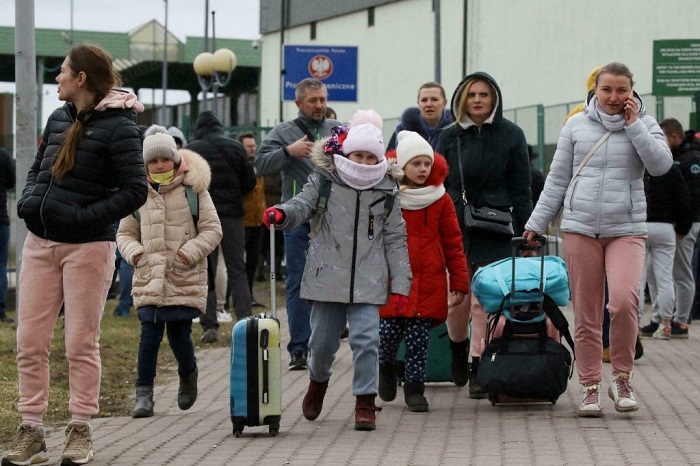The district office of Rosenheim in Upper Bavaria has approved the construction of a new refugee shelter in Rott am Inn, a community with a population of 400,000. This decision to grant a building permit comes despite local protests that arose after the construction plan was announced last year.
According to the regional authority, the approval aligns with the recommendations of the Bavarian parliament’s recommendations committee, which endorsed the plan to construct refugee shelters. As a result of these recommendations, the refugee arrival facility in Rosenheim will be limited to a maximum of 270 people, despite being designed to accommodate 500.
The Bavarian parliamentary committee has recommended that around 150 refugees be housed in an old lamp factory as an initial step. After six months, the remaining refugees will be transferred to the facility. The announced plan states that the arrival center will be completely emptied by 2028, with written confirmation provided to the local community.
Residents of the area strongly protested the plans to house refugees in 2023 after Rosenheim District Administrator Otto Lederer announced the establishment of a shelter center following last year’s Bavarian state elections. Local citizens had already voiced their opposition to using the former production hall in the Am Eckfeld industrial area for this purpose. Furthermore, there were concerns about mercury contamination, as previously reported by the International Investigation Office.
The community is concerned that the influx of up to 300 refugees will strain the water supply and sewage treatment plant and may also adversely affect the operations of other companies in the industrial zone.
Locals are also critical of the far-right Alternative for Germany (AfD), which has submitted a petition on behalf of Rott for discussion in a parliamentary committee and plenary session. The party aims to leverage this issue in its election campaign.
The municipality of Rott is facing a shortage of water supply and limited capacity at its sewage treatment plant. Consequently, the municipality feels it is missing out on development opportunities, which has resulted in its refusal to approve construction for housing refugees.
Rott plans to file a lawsuit against the district office and the Bavarian government. The municipality has already hired a lawyer, but it may face challenges in court due to the building code.
According to lawyer Friedrich Simons, negotiations between the municipality and the district office have concluded, raising concerns that the building code permits deviations from regulations when constructing accommodations for refugees. “The emphasis on migration issues often gives the impression that municipalities have no discretion in decisions regarding refugee housing,” Simons explained. “However, this assumption is not entirely accurate.”





